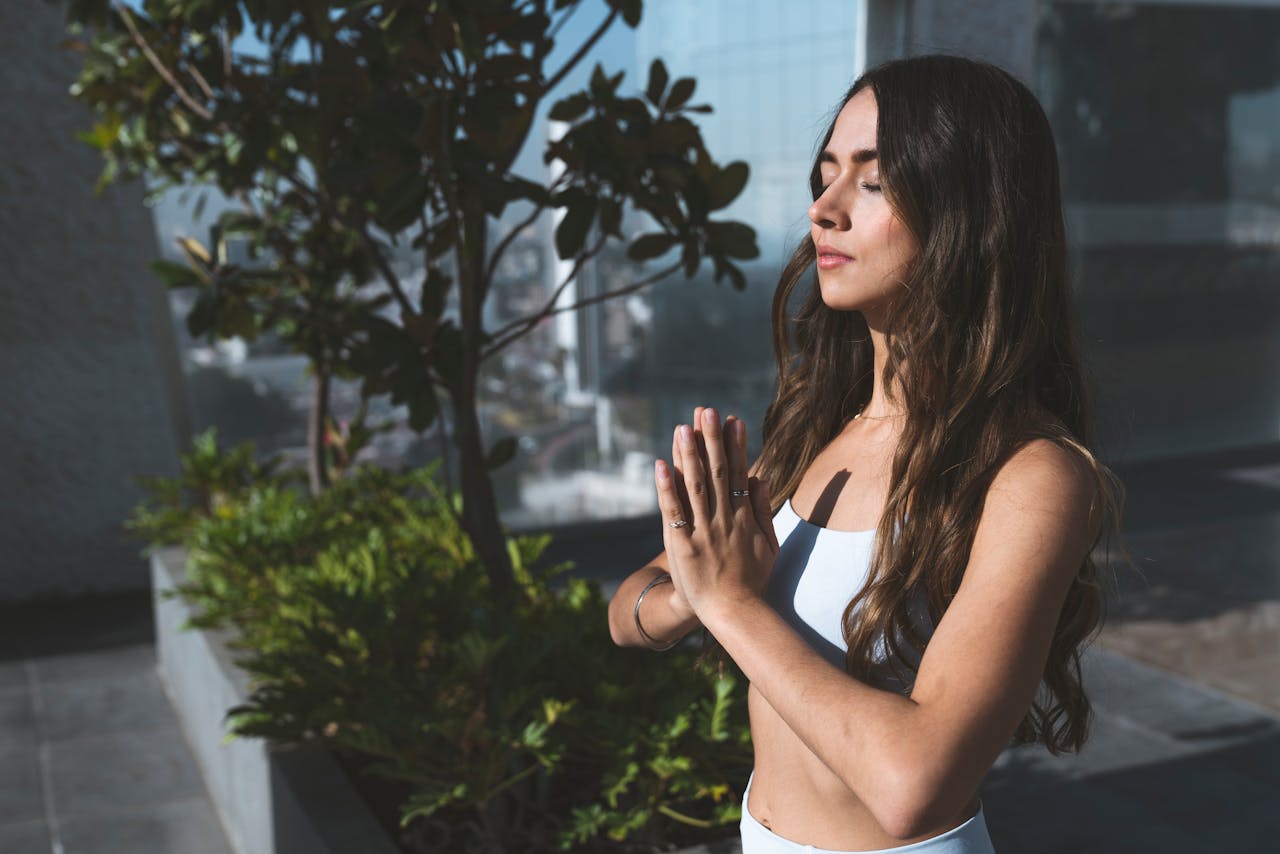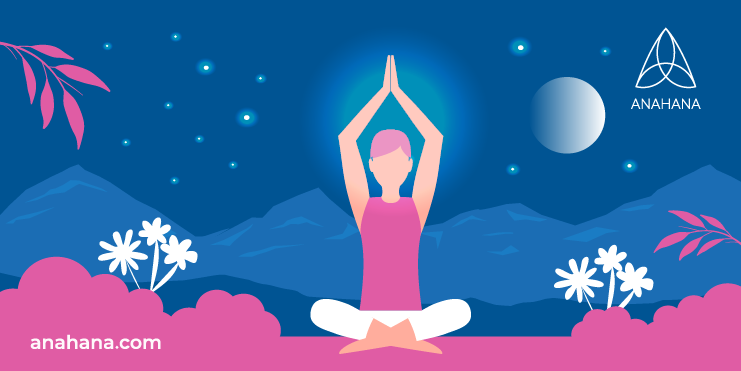
Table of Contents
Learn how to fit meditation into your daily routine! Discover which meditation times work best for you and your schedule, if lunchtime, bedtime, or working session meditations are appropriate.
Best Time to Meditate
Meditation has become an increasingly popular tool to reduce stress and improve overall well-being. However, many people struggle to find the best time to meditate. The truth is, there is no one-size-fits-all answer to that question.
Since we all have very different schedules and lifestyles that may affect when we can meditate, a reasonable question comes to mind – when is the best time to sit down for some zen zooming?
What is Meditation?
Before you pick a time for meditation, it’s important to understand what the practice is about. Think of meditation as your timeout from the chaos of everyday life—a simple yet powerful way to hit pause, take a deep breath, and check in with yourself.
It's not just about sitting in silence; active meditation is about learning to quiet the noise in your head and finding peace amidst the hustle and bustle.
Through regular practice, meditation helps sharpen your focus, reduce stress, and boost your mood. Guided meditations can help you relax, recharge, and return feeling more centred and ready to tackle whatever comes your way.
Meditation is that space where you can gently explore your thoughts and feelings, find clarity, and get to know yourself better.
Meditation expert Pema Chödrön says, “Meditation practice isn’t about trying to throw ourselves away and become something better. It’s about befriending who we are already.”
Benefits of Meditation
Meditation offers a treasure trove of benefits for your mental health. With regular meditation practice, you can experience a significant reduction in stress, an improvement in your ability to focus, and a general boost in mood.
By dedicating just a few minutes each day to meditation, you're investing in your peace of mind and enhancing your overall well-being.
This simple habit can be a game-changer for managing anxiety, sharpening your concentration, and fostering a sense of inner calm that sticks with you throughout the day.
- Boosted mental health: Regular meditation significantly reduces stress and enhances overall well-being.
- Improved focus: Helps sharpen concentration, making it easier to stay on task.
- Elevated mood: Acts as a natural mood enhancer, lifting spirits and combating anxiety.
- Reduced anxiety: Offers a powerful tool for managing anxiety, creating a sense of calm.
- Enhanced well-being: Fosters a deep sense of inner peace that impacts daily life positively.
Morning Meditation
Morning is the most popular time to meditate for meditation newbies and those with regular practice. It sets you up for the rest of the day with more presence, better resilience, and less reactivity. Furthermore, early morning times are quiet, and nothing else usually gets in the way of your time.
Benefits of Morning Meditation
Meditation in the morning allows you to avoid being interrupted by texts, calls, or other things interrupting you at home. Cortisol levels are higher in the morning, which allows you to relax before your busy day starts and focus on a deep meditation.
After you finish, your mind will be ready to effectively start your day, no matter how many things are in your schedule.
Your mind is clear, and you have increased mindfulness, allowing you to engage with whatever your day brings. Meditation experts have said daily morning meditation can also increase attention, memory, and emotional regulation.
Tips for Morning Meditation
- Finding a quiet space with no disturbances or distractions by anything will be easy in the morning.
- Meditate in an upright or standing position to feel more awake and alert after waking up. It also reduces the temptation of falling back asleep if lying down.
- Try meditating at the same time every morning to help you build the habit. Reflect on what you are grateful for, like shelter, family, or a friend, and give thanks to close out the meditation.
- Do morning meditation before you eat breakfast when the body isn’t digesting food, as active digestion can make your mind more sluggish.
Lunch Hour Meditation
Lunch break meditation is great for your well-being because it can reduce the stress that's been building throughout the day. You can detach from work, studying, or other pressures and focus on the present moment. That will allow you to gain more energy and a better perspective to continue facing whatever life throws at you to the end of the day.
Benefits of Lunchtime Meditation
You get to take a break and recharge for the afternoon. You might not notice that you are tense or stressed from your morning, so the lunchtime break is a great time to reflect on your feelings and refocus your headspace.
Tips for Lunchtime Meditation
- It's best to avoid meditating on a full stomach, so eat after or 30 minutes before meditating so that your food can digest.
- Meditation on an empty stomach deepens the experience because you can connect to your bodily needs and allow for mindful eating habits.
- Find a quiet place to meditate, away from your desk, an empty classroom, conference room, or office, and if you are at home, you can sit in a quiet room or on your porch or backyard.
- Try practicing five minutes of slow, intentional breathing to improve focus and concentration. As you practice regularly, you can increase your meditation time from five to 20 minutes.
- If you don’t have extra time to take away and meditate, make your lunch meal a part of your mindfulness meditation by slowing down your breathing and engaging your senses to savor each bite while eating outside with nature, if possible.
Evening Meditation

Evening meditation is a great way to wind down from your busy day and prepare to be well-rested. You can practice lying down or sitting to support you if you are planning to go to sleep straight after. However, we recommend not to fall asleep during the actual meditation practice.
Benefits of Evening Meditation
Evening meditation is perfect for stress management and those who find it difficult to fall asleep at night. Meditation relieves stress and decreases cortisol levels, while alpha brain waves, a relaxation state, increase. This calms the nervous system and allows you to focus on the mind.
Tips for Evening Meditation
- Try meditating ten to 20 minutes before bed if you have trouble falling asleep.
- Schedule your meditation time so you can set time aside and not feel rushed to practice.
- Make sure it can integrate into your bedtime routine.
- Focus on basic breathing exercises or listen to guided meditations. Pick something simple when you first begin practicing meditation and go for at least five minutes per day.
- When you feel comfortable, add another calming activity to your evening routine, such as yoga. Add music to the background if it helps you meditate better.
References
Meditation: A simple, fast way to reduce stress
Meditation and Mindfulness: What You Need To Know | NCCIH
How to Meditate for Beginners — Ten Percent Happier
Disclaimer
The contents of this article are provided for informational purposes only. Anahana does not provide medical advice, diagnosis, or treatment and should not be used as a substitute for medical advice from a healthcare professional. Anahana encourages to consult a qualified healthcare professional for medical guidance. Anahana is not liable for any errors, omissions, or consequences that may occur from using the information provided.

By: Meriah McCauley
Meriah McCauley is a leading voice in holistic healing, known across North America for her expertise in chakra balancing, spiritual alignment, and energy-based wellness. Her work bridges the art and science of mind-body healing, shaped through years of study, practice, and mentorship. Meriah deepened her understanding of spiritual anatomy and the chakra system under the guidance of her guru, Dr. Don Stapleton, during her immersive training in Costa Rica. She later earned her Master’s degree in Psychology from Columbia University, specializing in Spirituality and the Mind–Body connection, which continues to influence her integrative approach. Today, she supports individuals and practitioners through coaching, yoga teacher trainings, chakra-focused education, and Holotropic Breathwork for personal transformation. Meriah is dedicated to helping others develop emotional clarity, energetic balance, and spiritual resilience—and she remains committed to guiding anyone seeking a deeper, more meaningful connection with themselves.